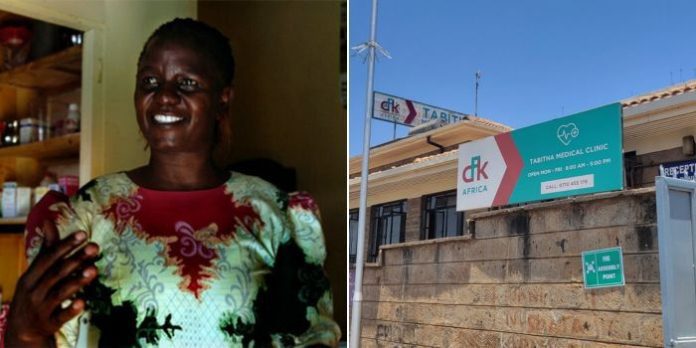Despite facing hardships, Tabitha Otieno was not deterred from pursuing her interests with the little amount she had.
With only Sh3,000, the bold businesswoman started a non-governmental organization (NGO) that has since transformed the lives of thousands of Kibera residents.
In a bid to make ends meet, Atieno turned her small 10×10-foot home into a healthcare facility for the underserved in her community and served patients day and night, including those who couldn’t pay for services due to financial constraints.
Her dedication to community service laid the foundation for the nonprofit organization CFK Africa, which laid the foundation for its primary healthcare work.
Today, the facility serves over 50,000 patients every year and co-host one of the largest overseas population-based infectious disease surveillance programs operated by the American Centres for Disease Control(CDC), Kenya Medical Research Institute(KEMRI), Washington State University(WSU), and the African Medical and Research Foundation (AMREF).
Despite passing away in 2004 after a short illness, Atieno’s efforts couldn’t go unnoticed, and has received recognition both locally and internationally, including the 2005 Global Health Hero award by the Bill and Melinda Gates Foundation.
Everything you need to know about Hepatitis C liver inflammation
”Tabitha saw patients 24/7 and did not turn anyone away, regardless of their ability to pay. Her dedication to community service laid the foundation for CFK’s Primary Health Care work, which now serves more than 50,000 patients every year,” a statement from the organization states.
CFK Africa was also honoured by Oklahoma City National Memorial and Museum with its Reflections of Hope Award in 2008.
Other notable achievements of CFK Africa included being featured as the cover story on an issue of TIME Magazine for Kids, titled A Higher Goal: Soccer is Helping Kenyan Kids Get Set for the Future.
Kibera, one of Africa’s largest informal settlements, faces significant public health challenges due to inadequate sanitation, poor waste management, overcrowding, and limited access to clean water and healthcare services.
Atieno’s contribution is a testament that community participation and partnerships with non-governmental organisations (NGOs) and the private sector can promote healthcare in informal settlements and curb deadly diseases such as diarrhoea, prevalent in informal settlements.









